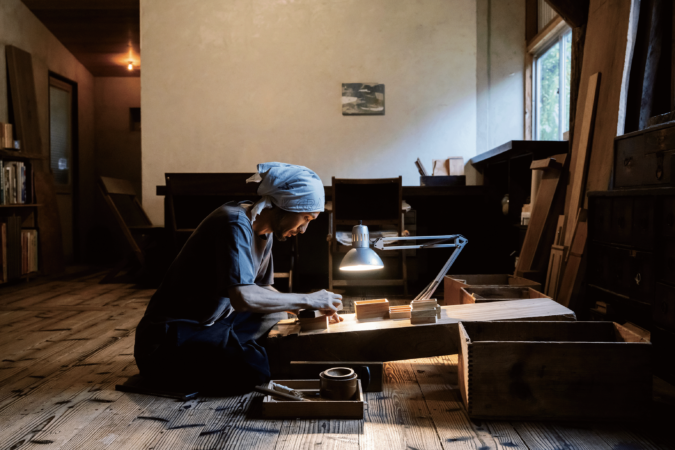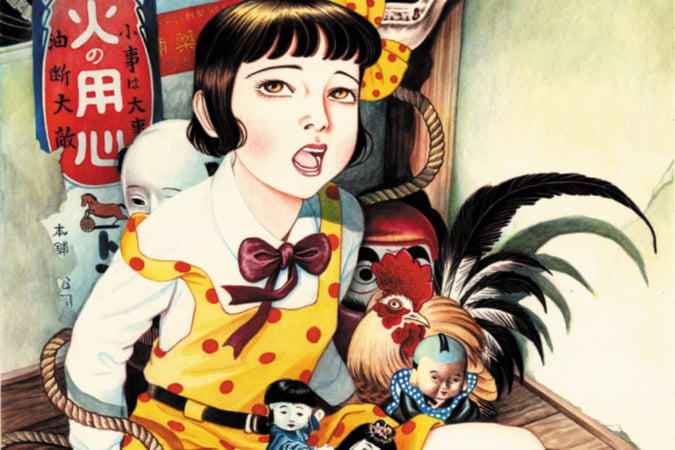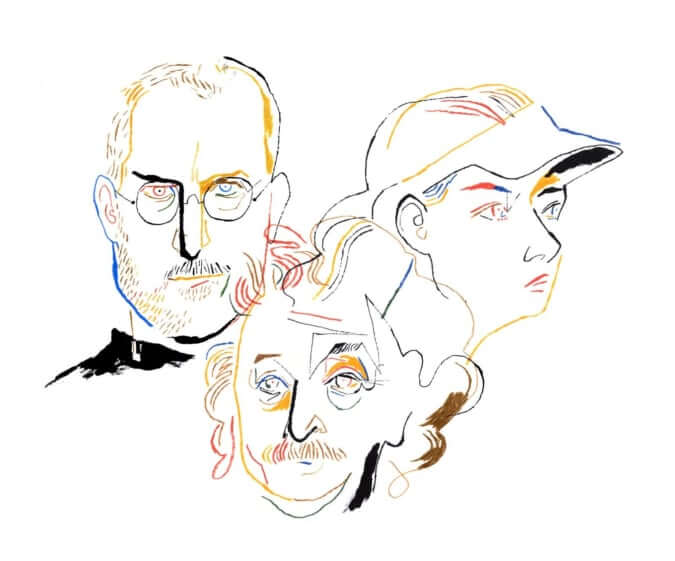‘Asakusa Kid’, an Intimate Look at Kitano
Adapted from the star's autobiography, this film retraces his early days on stage in Tokyo theatres, before his arrival on the small screen.
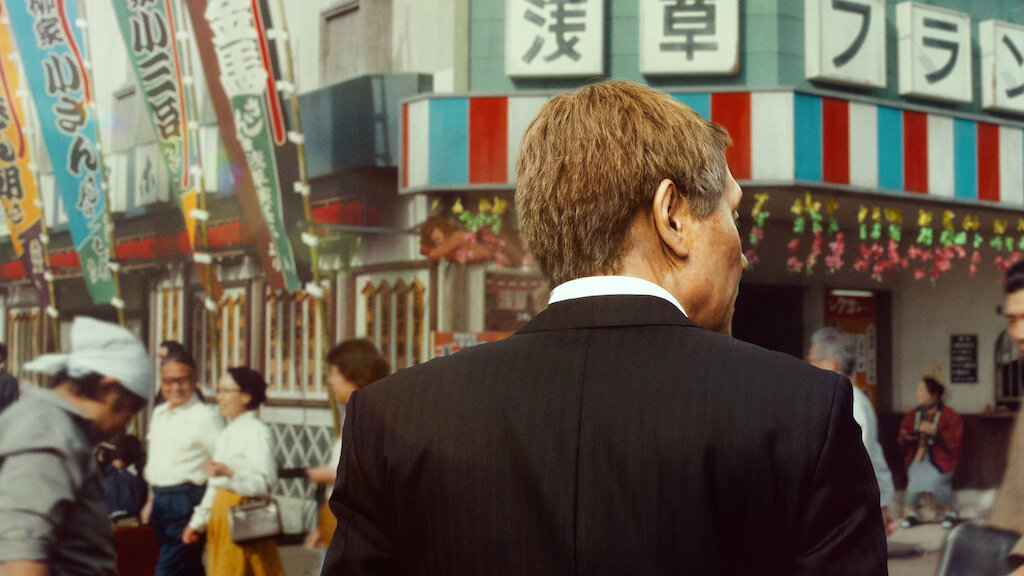
© Netflix
‘On an early afternoon in the height of summer, in late July, a young man wearing a vest arrived in the sixth district of Asakusa in Tokyo. That guy was me.’ These opening sentences set the scene for Asakusa Kid, Takeshi Kitano’s autobiographical novel.
The novel was adapted into a feature film in 2020 by director Hitori Gekidan, in which the young actor Yuya Yagira —who can be seen in Nobody Knows by Hirokazu Kore-Eda, a role for which he was awarded Best Actor at the Cannes Film Festival in 2004— plays Takeshi Kitano, in the early stages of his career.
From a lift operator to a film star
Thus, the viewer encounters him in 1970, working as a lift operator in a strip club, before taking to the stage as a last-minute stand-in for comedians in their absence. Takeshi Kitano discovers a taste for improvisation, in front of an audience who are not particularly engaged, given that they had not really come to the cabaret with the intention of watching a comedy show.
Hitori Gekidan, who revealed to Vanity Fair in November 2020 that he had ‘long awaited the day when I could work together with everyone about a person, town and story that I love’, depicts a Takeshi Kitano who is already wily and economical with the truth, but who forges a strong relationship with Fukami Senzaburo, his mentor. Asakusa Kid also recreates his encounter with Niko Kaneko, with whom he left the Tokyo cabaret in 1972 to form the duo The Two Beats who went on to become popular manzai performers, making a name for themselves with their improvisation-based sketches.
Asakusa Kid does not go beyond this point. The feature film draws to a close on this individual who has not yet become Beat Takeshi, the director, actor, filmmaker, television presenter and painter. The Golden Lion at the 1997 Venice Film Festival for Hana-bi is still a long way off. However, the viewer can already detect the first signs of his multifaceted style, in a time that marked the end of an era: that of the cabarets in working-class Tokyo, supplanted by the earth-shattering arrival of television in homes where, a few years later, this Asakusa kid would make his entrance as a star of the small screen. This film by Hitori Gekidan is the second cinematographic adaptation of Takeshi Kitano’s autobiography, following Makoto Shinozaki’s film released in 2002.
Asakusa Kid (2020), a film directed by Hitori Gekidan, available on Netflix.
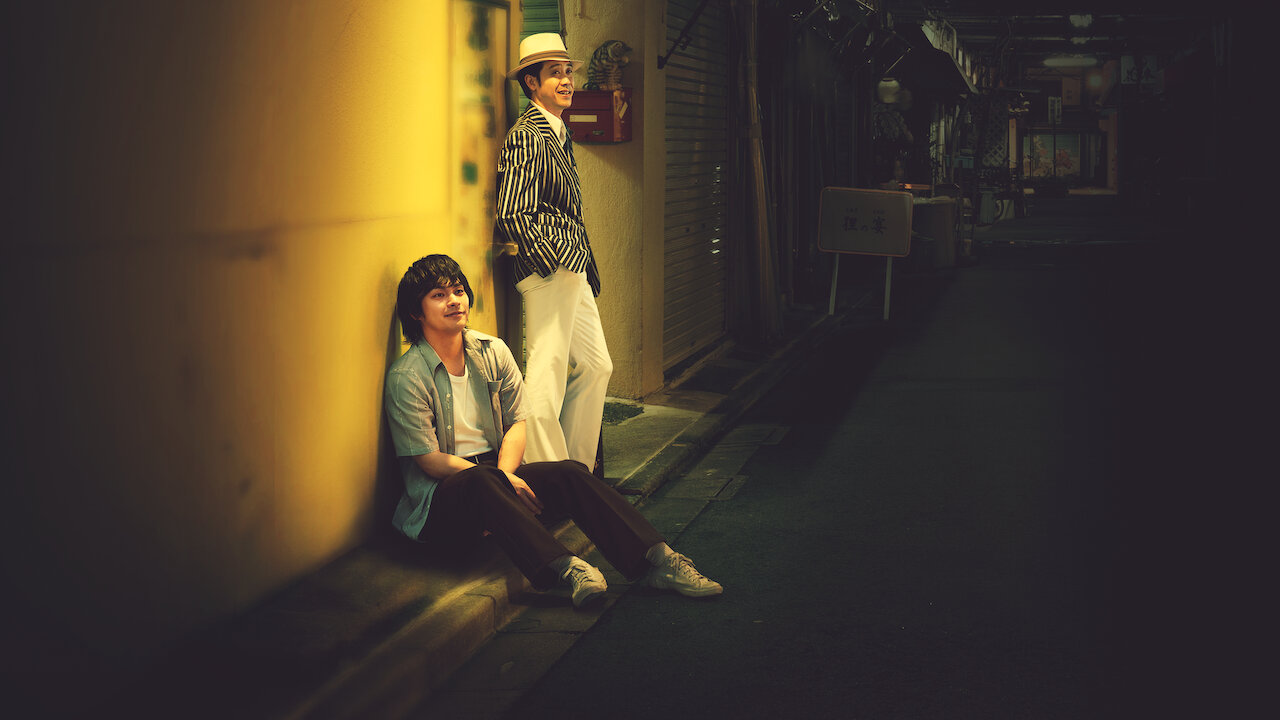
© Netflix

© Netflix
TRENDING
-
Hiroshi Nagai's Sun-Drenched Pop Paintings, an Ode to California
Through his colourful pieces, the painter transports viewers to the west coast of America as it was in the 1950s.

-
A Craft Practice Rooted in Okinawa’s Nature and Everyday Landscapes
Ai and Hiroyuki Tokeshi work with Okinawan wood, an exacting material, drawing on a local tradition of woodworking and lacquerware.

-
The Tattoos that Marked the Criminals of the Edo Period
Traditional tattoos were strong signifiers; murderers had head tattoos, while theft might result in an arm tattoo.

-
‘Shojo Tsubaki’, A Freakshow
Underground manga artist Suehiro Maruo’s infamous masterpiece canonised a historical fascination towards the erotic-grotesque genre.

-
‘Seeing People My Age or Younger Succeed Makes Me Uneasy’
In ‘A Non-Conformist’s Guide to Surviving Society’, author Satoshi Ogawa shares his strategies for navigating everyday life.


